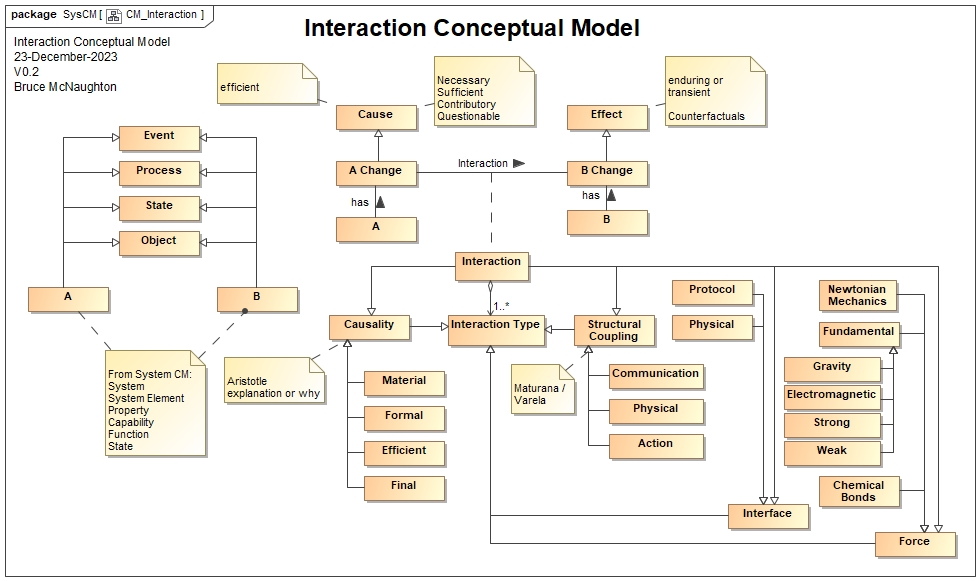Interaction
The behavior of a system is based upon a specific configuration (physical model) that embodies a physical realization of the system structure (logical model). This specific configuration also includes the set of relationships that are translated into specific types of interactions between elements of a system-of-interest:
-
System Elements
-
System Elements and the Environment
-
Other Systems
-
This may also involve properties, functions, states of the system-of-interest.
The type of interaction that is identified can determine the performance of the system (capabilities and properties).

The concept of "Action Potential" is an important concept from James Rose, member of the ISSS. This allows for types of actions such as a Gradient over spactime (e.g. force density over space or a discrete packet of information - e.g. communication) that causes a change in the interaction. These fundamental types and characteristics of the action potential vary by the type of interactions shown in the diagram. This means that multiple interactions may be in effect for any interaction, some residual and some primary, all impacting the result of the interaction.
The above diagram highlights the types of interactions that can occur. Multiple types of interaction can be applied simultaneously, however, some may be more dominant than the others.
There are four types of interactions:
-
Force
-
Interface
-
Structural Coupling
-
Causality
Some of these types of interaction relate to types of systems and their classification and others may be similar types but use different words. The following are notes on each type.
Force
-
Newtonian Mechanics (equations of motions and force)
-
Fundamental Forces (Gravity, Electromagnetic, Strong (Nuclear, Subatomic) and Weak (Beta Decay))
-
Chemical Bonds (Strong (Ionic, Covalent, metalic); Weak (Temperature or other factors)).
Interface
-
Protocol (communication protocols)
-
Physical (electrical, mechanical, etc)
Structural Coupling
This relates to Maturana and Varela, Santiago theory of cognition:
-
Disturbance / Trigger
-
Impact on the receiving system (action, reaction internally or externally)
Causality (Aristotle)
-
One or more material, formal, efficient, final causes enabled during the interaction.
-
Some causes may relate to other types of interactions